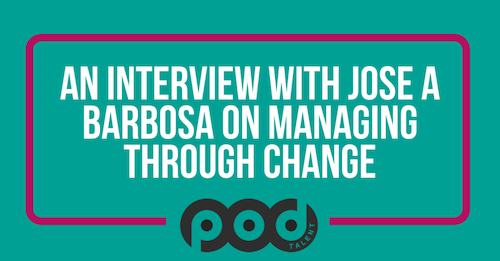Managing through Culture Change in a Manufacturing Environment: An Interview with José A Barbosa – Engineering Manager at Carlsberg Marston’s Brewing Company
When you recruit within a certain space over a period of time you tend to start noticing recurring trends and issues when speaking with your clients and candidates. I have been recruiting within Manufacturing and Operations for over two and a half years now and I think the most prominent pain point for the majority of clients that I have spoken with in this time has been their company culture and the resistance to cultural change. It’s fair to say that the world has changed a lot in the past 10 years with the introduction of new technologies along with various political and environmental changes so businesses have constantly needed to try and adapt to this.
For Manufacturing businesses, this change needs to start on the shop floor as these people are the core of your company. A couple of years ago I placed José A Barbosa as an Engineering Manager at Carlsberg Marston’s Brewing Company, from our first conversation it was very clear that this was someone who was passionate about improving shop floor culture and implementing change. We have stayed in touch regularly since then and I recently caught up with him to discuss his thoughts on managing through culture change in a Manufacturing environment.
What is your definition of a company culture?
The culture of a company is made of all the practices and beliefs that the members of the organisation experience in a daily basis.
What are the typical cultural issues that businesses face nowadays?
As we are more interconnected, the members of an organisation are exposed to more cultural changes than before. Merging organisations normally find challenges such as matching national cultures, variety of perceptions related to generational differences and groups of people with different levels of technological knowledge, amongst others.
Why do you feel cultural change is important?
We are all continuously changing and adapting to our business’ new requirements. To do it effectively, we must be open to change. The more flexible that a team can be to work under high levels of uncertainty, the easier it will fit in future markets.
Have you ever been in a business that was resistant to change?
All businesses are resistant to change in one way or another. In my experience, the businesses where I have worked were always under one aspect of cultural change. In some cases the business was taken over by a foreign company, in other instances the organisations were in a journey to manufacturing excellence, sometimes the change was just a management re-organisation.
In your opinion, how do you actually manage through cultural change?
My personal way to manage a team through change is implementing tools that improve communication. There are frameworks that point us to see a culture (any kind of culture) as if it were formed by layers. Some layers we can see, and those are the ones that I try to positively affect first in order to generate a deeper change in the perceptions and beliefs of the team.
What are the main barriers to change?
The main barriers are those layers that we can’t see. The habits, paradigms, preconceived ideas and beliefs that the team may have. Those are always preventing experimentation and openness to change. In my experience, team members with strong beliefs, those that are more difficult to change, once they buy into the new culture, they become big advocates of it. This only proves that the change is effective if it is for a good reason.
How does it impact the flexibility of a business to make decisions?
Flexibility is a big strategic advantage nowadays. It gives the organisation the capability to try new things, learn quickly from its mistakes and re-direct efforts and resources to more beneficial activities.
What are the strategic/operational advantages once cultural change has been achieved?
Ideally, the new emerging culture should keep the best of the previously existing cultures. This means that the organisation should be better adapted to compete in the current market conditions. It is not always the case, as everything else in this world, cultural change is also imperfect and some of the bad habits are also transferred into the new organisational culture. However there are many advantages, such as extended portfolios, an influx of new skills into the business, adoption of best practices from the same or a different industry and horizontal thinking.
What part does effective communication play in achieving cultural change?
Effective communication is the base of change. Change starts with clear and honest discussions and nurtures from the team members point of view. Change is implemented through the team members, and a clear message regarding the goals & objectives and what they mean for them on a daily basis is paramount. Clear and honest communication is what holds the trust between an organisation and the people working in it.
As a leader, how do you feel when you achieve objectives and are attributing to company goals?
It is extremely fulfilling. I feel proud of my team and I always praise them, making sure that they clearly understand what they have done and how that translates into company results. Also, I make sure that we see what has been achieved as a team and recapitulate the journey. Where we are coming from, where we are and where we are going together, as a team.
We really hope that you have found this interview insightful. If you would like to discuss ways to improve shop floor culture and implement change in your company through finding high caliber talent then please send an email to carl.costigan@pod-talent.com

